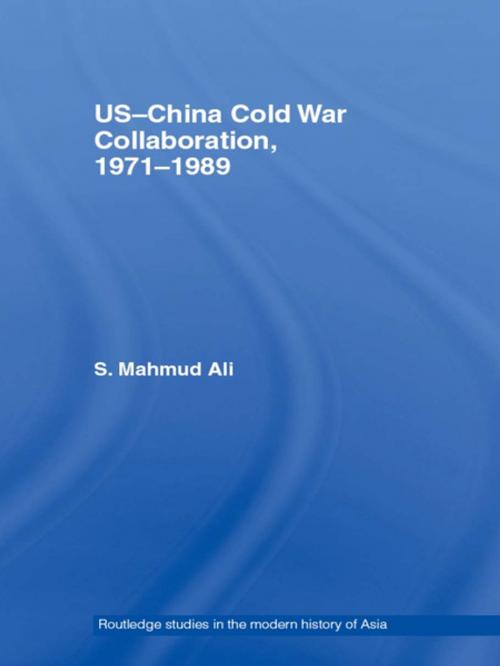US-China Cold War Collaboration
1971-1989
Nonfiction, Social & Cultural Studies, Social Science, Cultural Studies, Ethnic Studies, Political Science| Author: | S. Mahmud Ali | ISBN: | 9781134245802 |
| Publisher: | Taylor and Francis | Publication: | April 11, 2007 |
| Imprint: | Routledge | Language: | English |
| Author: | S. Mahmud Ali |
| ISBN: | 9781134245802 |
| Publisher: | Taylor and Francis |
| Publication: | April 11, 2007 |
| Imprint: | Routledge |
| Language: | English |
After more than four decades the Cold War ended with the sudden collapse of the Soviet Union. Almost simultaneously China emerged as the new potential disruptor of international stability, with Beijing replacing Moscow as the key source of Western insecurity.
Drawing upon extensive primary resources, Ali questions the logic behind this perception, reflected both in popular and academic literature. Disclosing hitherto unknown aspects of the Soviet Union’s disintegration, the text reveals a secret strategic alliance between the USA and China during the Cold War’s final decades. Presenting an in-depth analysis of the relationship between the two countries, the book identifies the bases on which the alliance emerged; the growing mutual concern of a ‘Soviet threat’.
Using documentation from the three capitals, Ali presents a compelling tale of intrigue and conspiracy at the highest level of the international security system. The text brings a new dimension to the current literature and deepens our understanding of a key aspect of the Cold War – its end.
After more than four decades the Cold War ended with the sudden collapse of the Soviet Union. Almost simultaneously China emerged as the new potential disruptor of international stability, with Beijing replacing Moscow as the key source of Western insecurity.
Drawing upon extensive primary resources, Ali questions the logic behind this perception, reflected both in popular and academic literature. Disclosing hitherto unknown aspects of the Soviet Union’s disintegration, the text reveals a secret strategic alliance between the USA and China during the Cold War’s final decades. Presenting an in-depth analysis of the relationship between the two countries, the book identifies the bases on which the alliance emerged; the growing mutual concern of a ‘Soviet threat’.
Using documentation from the three capitals, Ali presents a compelling tale of intrigue and conspiracy at the highest level of the international security system. The text brings a new dimension to the current literature and deepens our understanding of a key aspect of the Cold War – its end.















